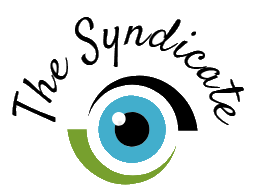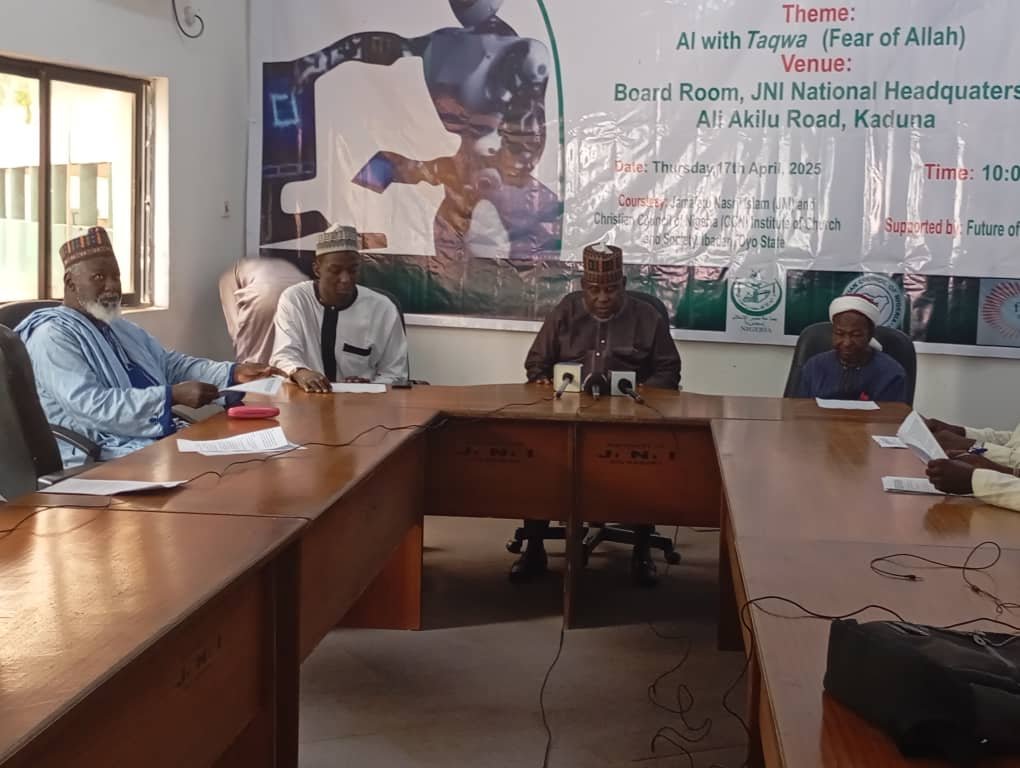Nigerian Religious Coalition calls for national framework to limit AI to ethical boundaries
The Nigerian Religious Coalition on Artificial Intelligence (AI), has called for a national framework to guide the use of AI within ethical and responsible boundaries.
The Secretary General of Jama’atul Nasril Islam (<span;>JNI), Prof. Khalid Abubakar Aliyu, said while addressing a press conference on Thursday in Kaduna that the coalition acknowledged the potentials of AI to advance knowledge and skills in all areas, but warned that measures must be taken to contain its disruptive features.
“Considering the impact of mosques and churches to the Nigerian public and community life, it is imperative to draw the attention of the general public to the unassuming disruptive effect of AI and the utmost need to enhance understanding of AI and its implications to faith and society.
“Equip religious leaders to engage meaningfully in AI-related policies and regulations, promote collaboration between faith communities and policymakers for ethical and responsible, as well as inclusive AI adoption, in Nigeria.”
He particularly said that Muslims recognise knowledge as a trust from Allah, and technology as part of the unfolding wisdom in Allah’s creation, which must be deployed for the benefit of humanity, the consciousness of God, justice, and compassion.
Khalid noted that AI now represents one of the most powerful technological but disruptive tools of this century, with potential to assist in medicine, education, agriculture, and many areas of life.
“However, with great power comes great responsibility. The Shari’ah teaches us that all human actions are subject to accountability.
“The tools we create, if not guided by ethical and moral boundaries, may harm the very dignity they were intended to preserve.
“As AI grows more complex; potentially taking on roles that influence human judgement, behaviour, and identity, we must ask: does it serve the creation or compete with the Creator?”
He said JNI supports ongoing cooperation between faith communities on AI, so that together, “we can ensure that technology remains a servant of mankind, not its master”.
Khalid said Nigerians must continue to engage and carefully reflect on the use of AI, so that it does not take them away from their religious teachings, because the most powerful AI systems are being made without regard for the deeper religious questions at play.
According to the JNI scribe, since AI companies aim to change what it means to be human by disruping access to jobs and human relations, religious leaders should guide communities through these changes to avoid unprecedented chaos.
“Thus, religious leaders should explore and or study, as well as deepen their understanding of their faith’s doctrines and theology relating to AI, so as to ensure technology does not supplant the role of God in society.
“It is therefore very vital that religious communities are not left behind in these discussions. Our voice must be clear and heard.
“AI should serve human dignity, not reduce it. It must uphold justice, not compromise it. It must support life, not endanger it. We cannot allow a world where machines decide matters of morality, faith, or life and death,” he added.
He therefore called on scholars, policymakers, and technologists to include ethical and spiritual considerations in AI development.
“In the Nigerian context, where religion deeply shapes our social fabric, this is even more critical.
“Nigeria, as a regional leader, should push for the establishment of international governance frameworks to safeguard against the global risks of AI world-leading developments.
“In so doing, the Nigerian government should engage with Nigerian religious leaders in developing its framework and policy for AI for the Nigerian cyber space.”
Khalid said the government must ensure AI is built and used safely and ethically, in line with Nigeria’s religious values, traditions and communities, and ensure that people are protected from AI manipulation, and worker’s rights and livelihoods are respected and prioritised.
He therefore said that Nigerian Religious Coalition calls for greater religious engagement on questions around AI, enlighten people to use it with utmost fear of Allah, and for government to involve religious leaders that have a fair understanding of AI and religious doctrine in developing a framework for its application in the country.
“We should harness AI tools for progress in agriculture, health and education. We should prohibit uncontrollable Artificial General Intelligence that will disempower human workers, undermine human relationships or decrease human agency.
“We should guard against AI becoming an idol, or leading believers astray through manipulation.
“Religious groups should be proactive to learn about it, and be cautious in applying AI systems wholly.
“AI, rashly employed, could dehumanise religious practices or be subverted by malicious actors into misleading congregations contrary to their doctrine.”





